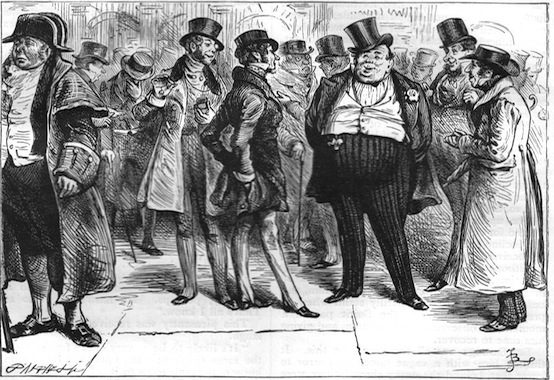Scrooge vs. Röpke: The Limits of Economic Virtue

Forbes contributor and CEI president Fred Smith has a different definition of the “culture war” than most: in a Monday op/ed, he argued that this war is economic at heart—waged between “the forces of economic dynamism and stasis.”
He offers two figures as inspiration for economic dynamism: the economist Deirdre McCloskey and Charles Dickens’s Ebenezer Scrooge, an old miser redeemed through spiritual intervention. According to Smith’s thesis, Scrooge is not a villain; rather, he was a victim of the anti-capitalist society. He references McCloskey’s book Bourgeois Dignity, where she writes that the Industrial Revolution was predicated on a shift in rhetorical values. Capitalism thrived after talk of private property, commerce, and the bourgeoisie became accepting and laudatory. Before this point, principles of hierarchy and community undermined the innovating class. Prudence and faithfulness enjoyed higher standing than virtues necessary for modern capitalism—namely, dignity and liberty:
“I claim here that the modern world was made by a new, faithful dignity accorded to the bourgeois – in assuming his proper place – and by a new, hopeful liberty – in venturing forth. To assume one’s place and to venture, the dignity and the liberty, were new in their rhetorics. And both were necessary.”
Smith argues that Scrooge (and other “penny pinchers” like him) was unfairly vilified because he championed McCloskey’s innovative virtues: “a willingness to break ranks with the cultural tribal norms of their community (courage), confidence that this course was needed (faith), and belief that their actions would eventually be vindicated (hope).” In creating Scrooge, Smith believes Dickens hearkened to a time when “guilds took care of tradesmen, nobles took care of their lands and serfs, and everybody had a station … He seemed not to have understood how the breakthroughs made by the Scrooges of that earlier age had helped transform England from a stagnant feudal society into the industrial powerhouse of his day. Certainly, he found nothing heroic or admirable in such individuals.”
Perhaps it was difficult for Dickens to applaud Scrooge’s capitalist “virtues” when facing the moral depravity and squalor that overwhelmed industrial England at the time. A Christmas Carol is full of characters who are destitute yet generous; he painted pre-reformed Scrooge as the antithesis of these poor but happy people.
Wilhelm Röpke’s book A Humane Economy dovetails with the transformed Scrooge. Rather than accepting Smith’s fully liberated individualism, Röpke advocated the principled economics of the “decentrist,” who “thinks in terms of human beings and also knows and respects history.” The decentrist adheres to “established principles; he is swayed more by a hierarchy of norms and values, by reason and sober reflection, than by passions and feelings.” This hierarchy-respecting capitalist is rather divergent from McCloskey’s progressive innovator. But Röpke believed innovation and free market economics have limits:
The market economy is not everything. It must find its place in a higher order of things which is not ruled by supply and demand, free prices, and competition. It must be firmly contained within an all-embracing order of society in which the imperfections and harshness of economic freedom are corrected by law … Man can wholly fulfill his nature only by freely becoming part of a community and having a sense of solidarity with it. Otherwise he leads a miserable existence and he knows it.
Scrooge came to know it. He forsook his icy palace of individualism for a life of community. Dickens and Röpke both seem to suggest that the virtues of dignity and liberty must be tempered and complemented with one more virtue, once called the greatest of them all: love.
Comments